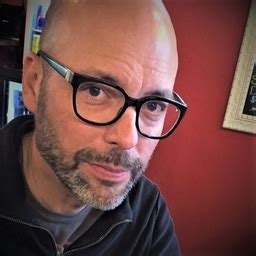A Quote by Tom Cotton
I spent several months patrolling Al Dora district in Baghdad in 2006 with the 101st Airborne. It's a tough neighborhood. There's a lot of militias operating there, including a lot of Shiite militias, which are backed by Iran.
Related Quotes
But the U.S. has to be careful. If our strategy depends on Sunnis doing the fighting to clear Mosul and Ramadi - and, as near as I can tell, that is the strategy - then you have to be careful that Sunnis don't perceive the U.S. to be operating arm in arm with Iran or with Iranian-backed Shiite militias that Abadi - Prime Minister Abadi is using in Iraq, so that, in effect, we're fronting for Iran.
Right, because they're looking at also organizing the Sunni tribes up around Mosul to take back that city as well. That's the second largest city in Iraq. That's going to be a very, very tough fight. And the Shia militias were not used in Ramadi, and we're told by the Iraqi generals that they don't want any Shia militias up in Mosul, either, to take back that city. So - but again, that's going to be a very, very tough fight.
After the revolution of 1979, Iran embarked on a policy of sectarianism. Iran began a policy of expanding its revolution, of interfering with the affairs of its neighbors, a policy of assassinating diplomats and of attacking embassies. Iran is responsible for a number of terrorist attacks in the Kingdom, it is responsible for smuggling explosives and drugs into Saudi Arabia. And Iran is responsible for setting up sectarian militias in Iraq, Pakistan, Afghanistan and Yemen, whose objective is to destabilize those countries.
I was with the 101st Airborne Division in Iraq, really in the middle of nowhere, about 80 miles south of Baghdad. And it was almost midnight, and I got a computer message from the home office of the Washington Post asking me to call them. I did call them and was told that I'd won the Pulitzer Prize.
The main mineral in your cellphone, coltan [a black metallic ore], comes from the Eastern Congo. Multinational corporations are there exploiting the very rich mineral resources of the region. A lot of them are backing militias which are fighting one other to gain control of the resources or a piece of the resources.
My mom told us never to reveal that we were Shia in school. You would find out that some other kid was Shiite, and you would whisper, 'Hey,' or you would see someone at the mosque, and you'd be like, 'Hey, that kid's Shiite!' There was a lot of tension, a lot of violence in Karachi between Shiites and Sunnis.
































